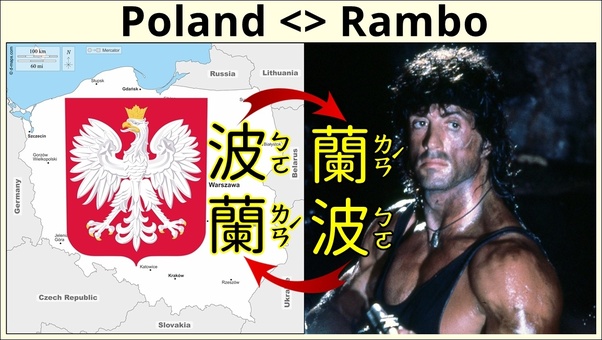
波蘭 (Traditional Chin. characters) / 波兰 (Simplified Chin. characters) bōlán / bolan is a syllable by syllable rendition of “Poland”. Nobody pays attention to the meaning of the individual characters: they are commonly used to stand for foreign syllables. Thus, 斯里蘭卡 Sīlǐlánkǎ / Syliilankaa stands for Sri Lanka, and 約翰·蘭波 Yuēhàn·Lán bō = John Rambo.
(1) The “b” in bō / bo stands for an unaspirated /p/
(2) The “n” at the end of lán / lan stands for the -nd in Poland: Modern Mandarin phonology does not allow for consonant clusters, so they are either ignored (-nd → -n) or replaced with multiple syllables, one for each consonant. An extreme example is the single syllable surname (Sherlock) Holmes, which is rendered as FOUR syllables: 福爾摩斯 Fú’ěrmósī / Fwueelmosy.
The PRCand the ROC have their own independent criteria for choosing Chinese characters #or foreign names. Thus, in Putonghua (PRC Mandarin) “Poland” 波蘭 spelled backwards is “Rambo” 蘭波. In the ROC, 蘭 is usually reserved for female names.
Image Credit
John_Rambo–CC–BY-SA Yoni S.Hamenahem (Chinese characters + Bopomofo + GR Tonal Spelling)